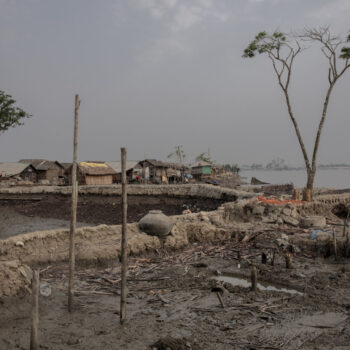When it comes to energy policy the Financial Times seems to be suffering the editorial equivalent of a nervous breakdown. Looking back through some of its recent stories I was struck by a headline from a Pilita Clark story in early October. ‘Germany energy market a disaster, says EDF chief’. What, I wondered, made the views of a French nuclear industry chief on his increasingly non-nuclear German colleagues so interesting.
Clark is one of the better informed and more meticulous journalists covering the environment anywhere. I have never found any reason to doubt the accuracy of her reporting. She has been a careful and consistent commentator on climate change. She does not normally cover energy stories.
The opening sentence of this particular story reminded us, as the FT often does, that Merkel accelerated a phase out of nuclear energy in Germany after Fukushima. Actually, to be rather more accurate, what Merkel really did was to restore a long standing phase out she had recently abandoned under pressure from German utilities.
The rest of the story reported the views of Henri Proglio, the Chairman of EDF, a French nationalised industry, on the German energy market. This he called ‘a disaster’. The FT clearly thought this intervention to be noteworthy. It had to dig quite deep to get the story.
It turns out that Mr Proglio’s remark was provoked by a question about the state of the French business environment. This in turn had arisen because of a singularly dumb comment from the head of John Lewis about France being ‘finished’. Mr Proglio clearly thought that Germany energy industry was too.
But, he went on, the picture in France and Germany was mixed. There were, he said with unarguable lucidity, ‘some very good and some very bad examples’. And that, more or less, was that. Hardly a story of overwhelming importance to the FT’s readers.
But not quite. There was one other point. Mr Proglio’s remark was prompted by the problems of Eon and RWE. ‘One’, he said, ‘is more or less dead, the other is in a very difficult situation.’ As the article pointed out, they had experienced a 20% and 62% fall in profits respectively.
So far, so sad. But the real kicker in story was the explanation the companies offered. In both cases this turns out to be renewable energy. For RWE it has left many of its power stations unable to cover their operating costs, and for Eon it had caused a decline in the price of baseload power.
So here we have it. The head of the French nuclear electricity industry is complaining about renewables destroying the value of German nuclear owning utilities. It is not hard to imagine why. The same gun is pointing his way.
Dissing renewables is an FT trope. So deeply is it twisting their editorial judgement that every opportunity to be negative, including one as trivial as this, must be taken. If this story had any value at all it was to celebrate the creative destruction of capitalism as nimbler rivals exposed the shared frailty and rigidity of both private and publicly owned existing utilities. Instead, the FT placed itself firmly on the side of the status quo.
Just over a month later, Mr Proglio had been sacked, the French Government has announced a 33% cut in its dependence on nuclear power; Eon had decided to spin out its traditional, less profitable, businesses into a separate entity and Citi had published a report forecasting a 28% fall in electricity market share for the UK Big 6 by 2020.


